6. Irreversible (2002)
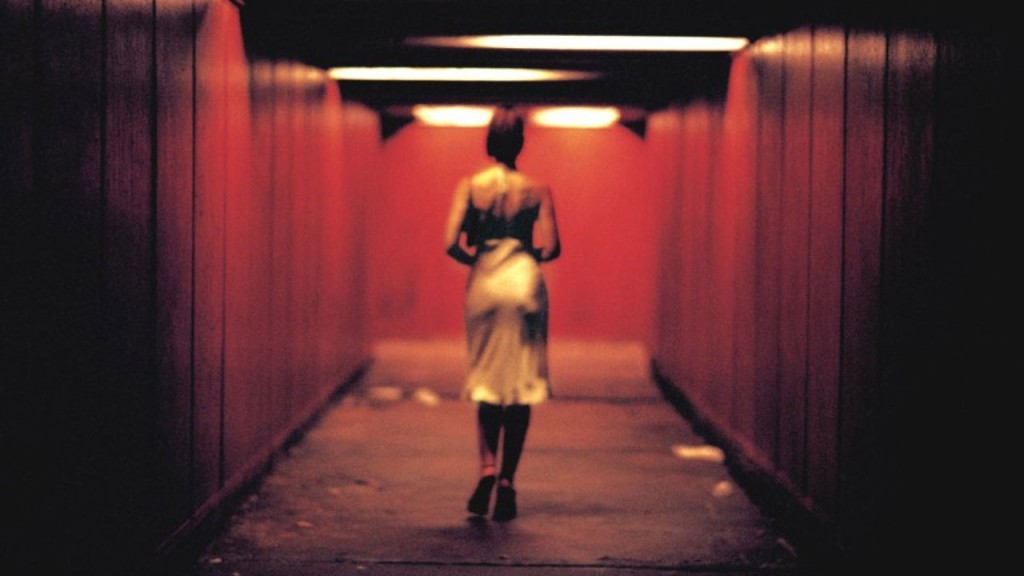
The master provocateur Gasper Noe frustrated his audiences so much at the first Cannes screening in 2002 that many people fainted and had to be admitted to the hospital. Unlike other filmmakers, Noe not only presents the bleaker reality on the screen, but makes sure that the audience feels the psychological effect of the truth and goes through a hellish journey, similar to his protagonists’ fate. In “Irreversible” he shows the predeterminism of fate; how the dark fate is waiting for all of us in the end.
The end of “Irreversible” is tender and sweet: the pregnant Alex reads a book while children surround the park bench upon which she is sitting. But the viewers witnessed their tragic fate in advance, that Alex will be raped by a stranger in an underpass and her child will be miscarried. The low-frequency background sound and uncut rape sequence is especially devastating to watch. When this sweet finale plays on the screen, the viewers will be reminded of the cold future that is waiting for them and Noe knows that well.
7. Bicycle Thieves (1948)
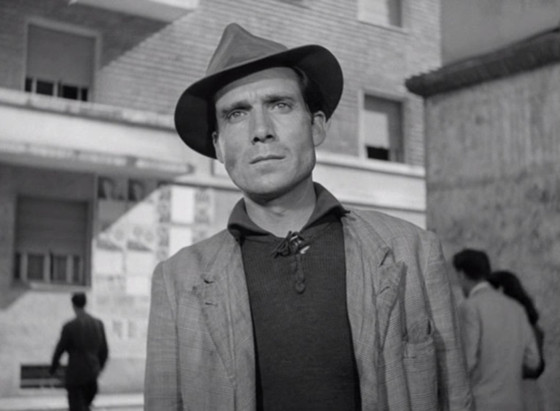
What can be more devastating than war? Well, postwar conditions of any country are sure to beat that. The social and financial infrastructure breaks down and the masses have to endure insufferable conditions due to that. In his 1948 Academy Award-winning film “Bicycle Thieves,” Italian filmmaker Vittorio De Sica sheds light on the moral decay in post-World War II Italy and analyzes the reason for it.
Utilizing non-professional actors, De Sica shot the film in the streets and created the plot around the struggle of a father in search of a job for his family’s sustenance. In the rat race of the Italian job market, the possession of a cycle means you’re ahead of the competition. Antonio Ricci got a job posting advertising bills as he has a bicycle, but when it is stolen, he is distressed by it.
Now, to save his job, he needs to obtain a bicycle by any means. Antonio sacrifices his moral conscience to save his family and steal a bicycle, but he gets caught up in the process. The owner forgives him, but to the horror of Antonio, his son Bruno witnessed the whole process.
As he tries to hold back tears, Bruno holds his hand. Antonio is no thief by nature; he had to steal the cycle in extreme need and maybe the person who stole his cycle also did the same. But he is heralded as a criminal, while the other person is saved. The bleakness of the world is certainly incomprehensible.
8. Invasion of the Body Snatchers (1978)
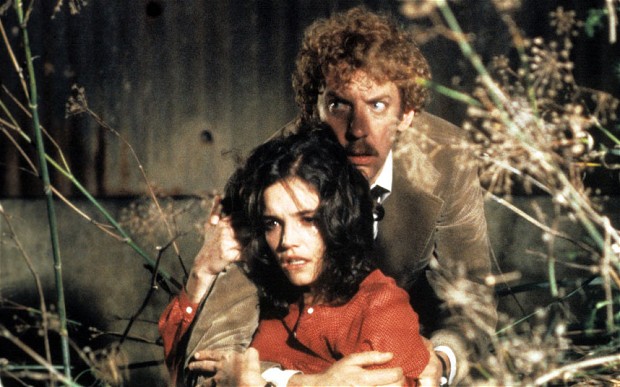
It is a sad and haunting world when you can’t believe anyone, including your dearest ones. A remake of the 1958 film “Invasion of the Body Snatchers,” which was also adapted from a Jack Finney novel of the same name, this 1978 film is one of the pinnacles of thought-provoking sci-fi that is also entertaining. The film has multiple interpretations, but one that long withstands is of lost individuality.
In the Communist regime, everyone has to conform to the shared ideal, otherwise they are branded as traitors. “Invasion of the Body Snatchers” is also an action film and the testosterone is high when our beloved lead characters are escaping the corrupted idealism of politics. But everyone has to be cloned and the political reality convinces us that conformation is the key to survival – a bleaker truth of the world.
9. Mulholland Drive (2001)
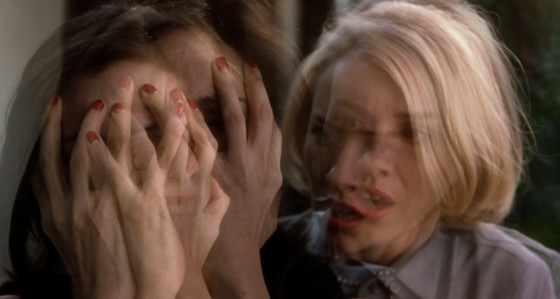
David Lynch always likes to play with his audience’s heads, but in his first offering of the 21st century, he created a film that is perplexing and emotional altogether. He knows the pain of shattered Hollywood dreams. Even the initial script of “Mulholland Drive” was conceived as a television pilot, but studio executives rejected it. In an act of revenge, Lynch imbibed social commentary of the Hollywood studio system in the film. But the film’s central story revolves around struggling actress Betty’s career and failed love life, and how she chose to reconcile with the hard truth of her life.
The film creates a dreamy maze that only can be deconstructed with Freud’s interpretation, but when it is uncovered, the cruel reality hits hard. It is assumable that most of the viewers have watched the film, but for the sake of mystery, the ending is not revealed. But the bitter truth is that psychological turmoil can never be excused, even in dreams.
10. Sunset Boulevard (1950)
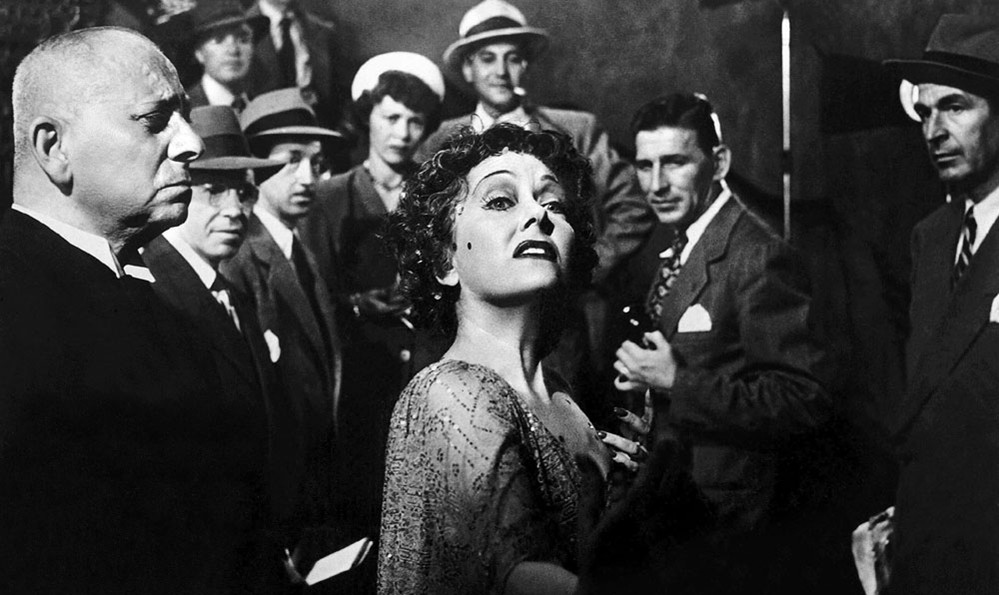
It is hard to adjust to changing times. For the people who were once in the prime of their career and considered as divas, it is almost impossible. Billy Wilder, one of Hollywood’s greatest directors, has shown a prophetic vision in interpreting the tragic fate of the Hollywood’s scarlets in his 1950 film noir “Sunset Boulevard.”
The aging silent film actress Norma Desmond couldn’t adjust to the new era of sound pictures and lives inside the bubble created by her servants and ex-husband that she is still popular with the crowd. Her servants regularly write her fake fan letters to keep her sanity intact. But she has been detached from reality for so long and proposes to come back on the silver screen with a terrible script she has written for herself. A financially troubled screenwriter, Joe Gillis, accidentally meets Norma and she quickly surrounds her life with him.
After initial reciprocation in the desire for money, when the screenwriter finally refuses to adhere to her demands, Norma loses all her sanity. When the police come to arrest Norma for murdering Joe, she had lost the sense of reality and poses for a close-up in some fictional Cecil DeMille picture. The hunger for power and glamour is universal and these bleaker films are just an example to show how illusory our physical demands are.